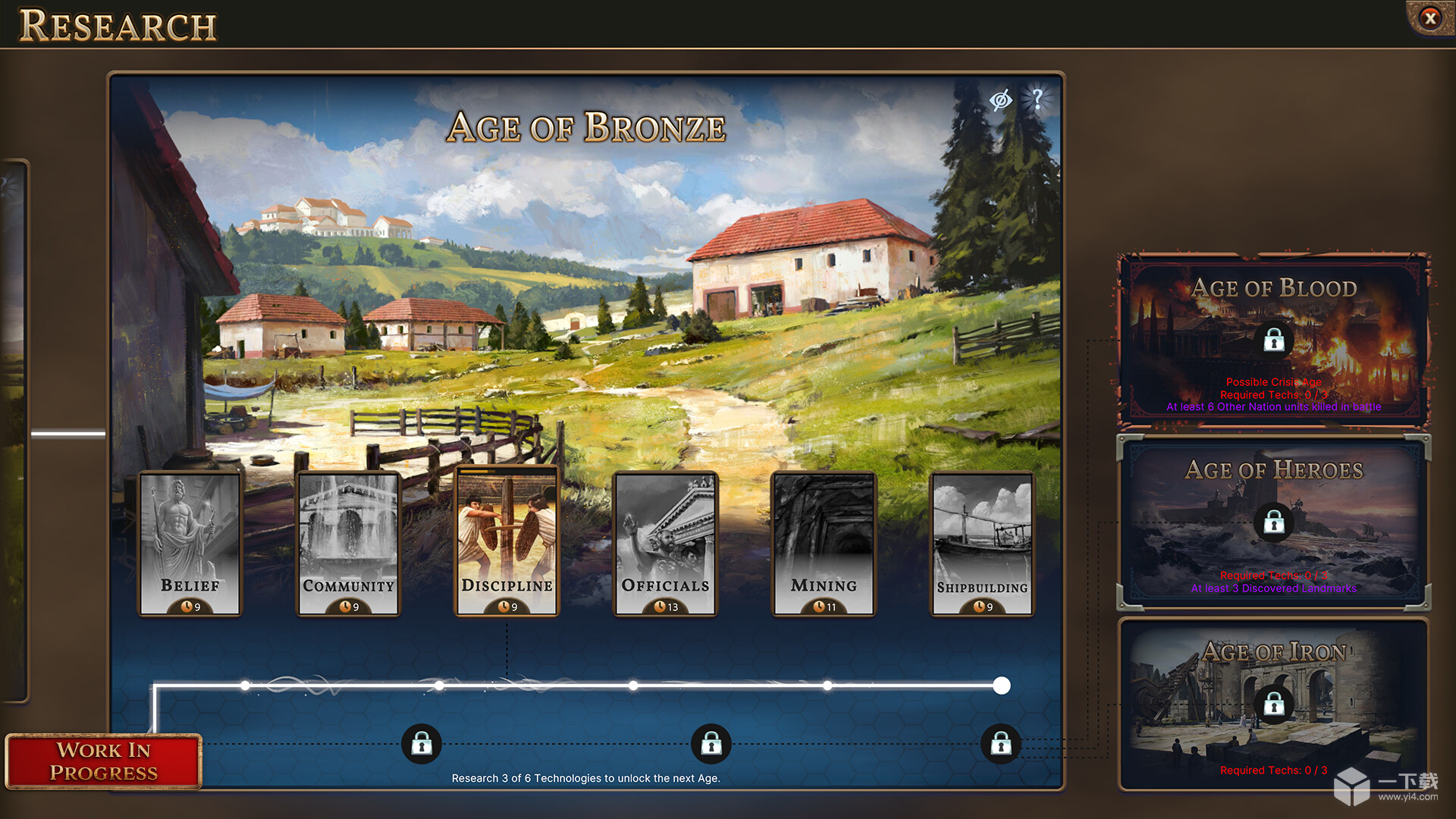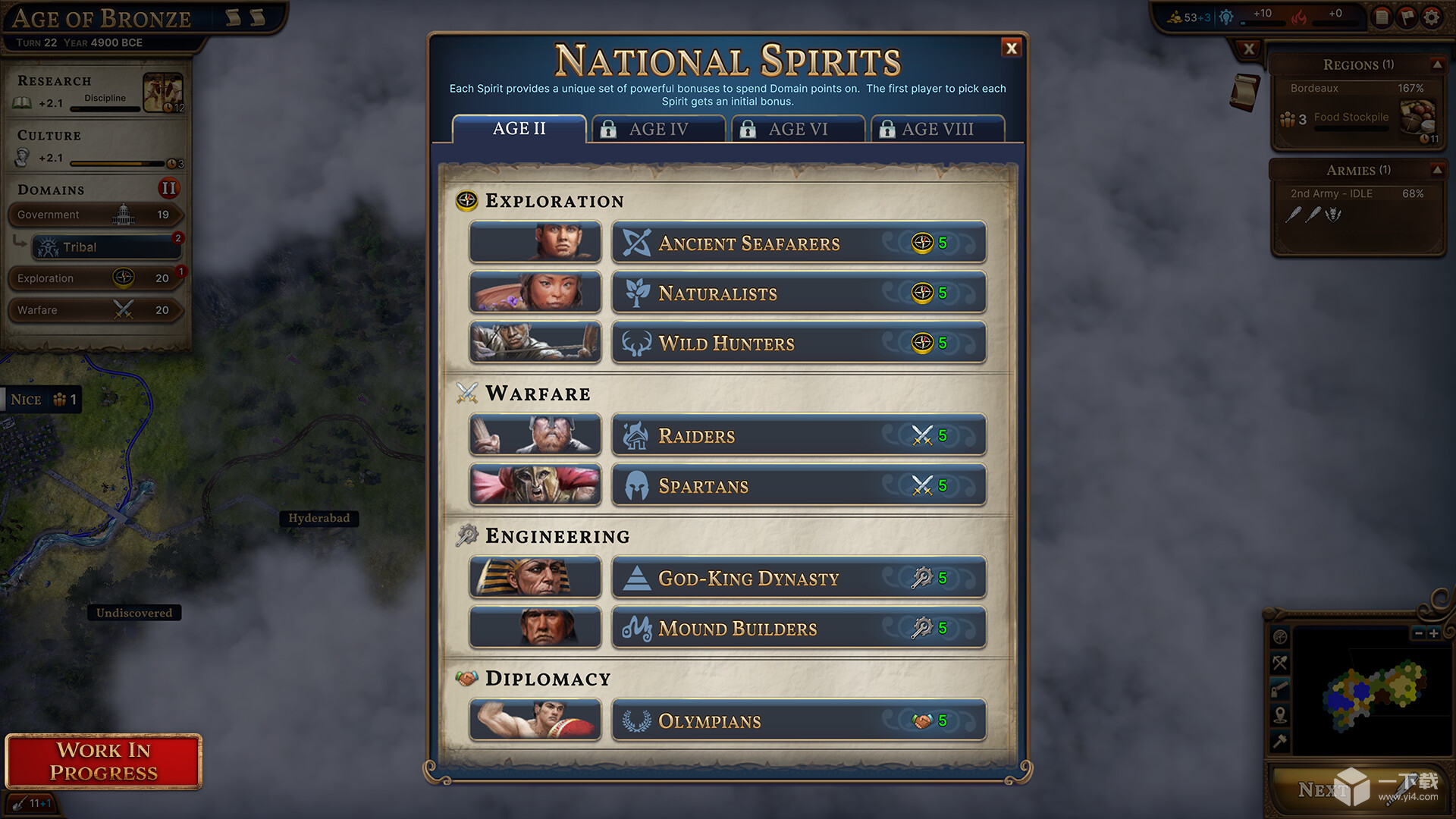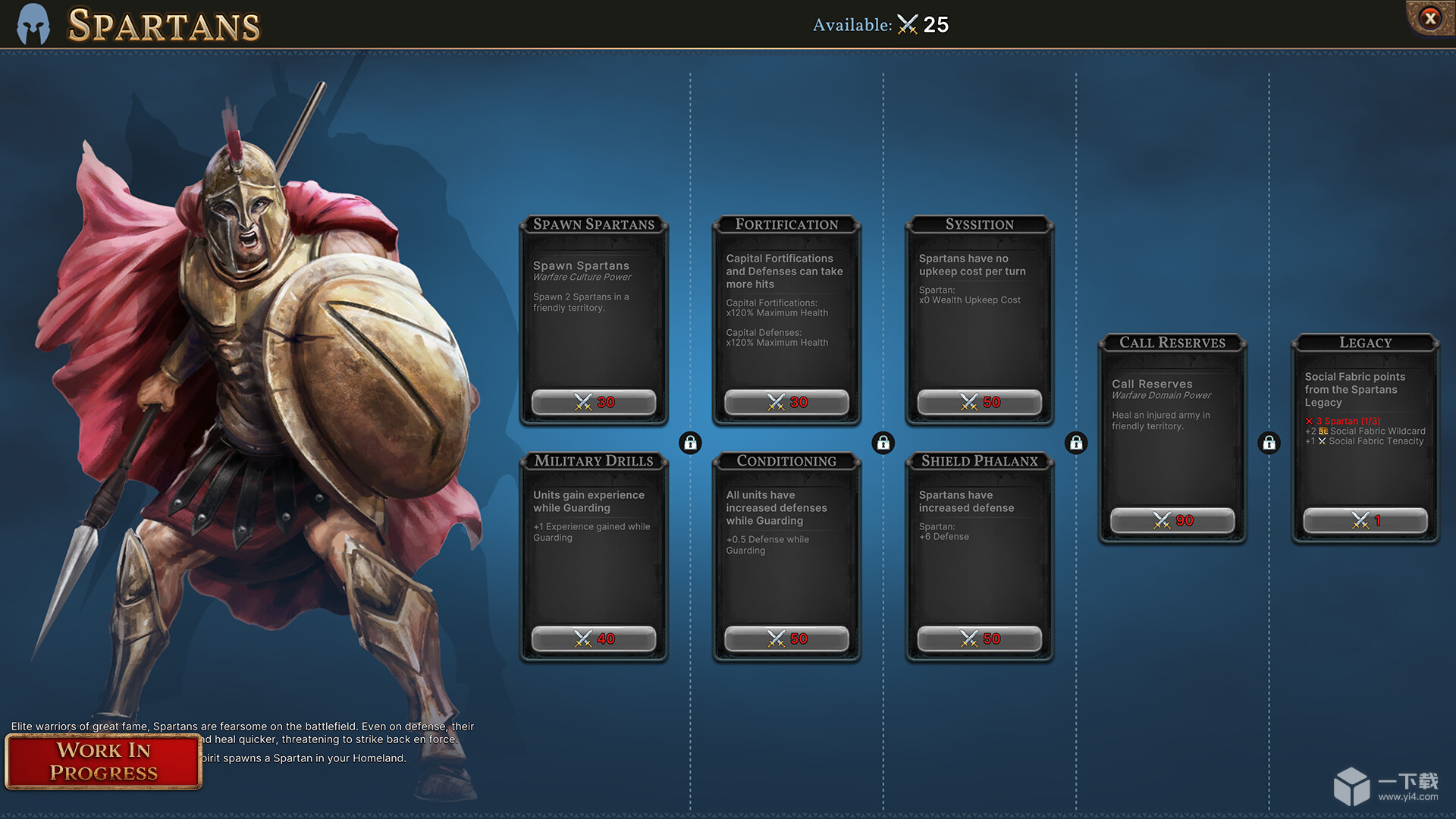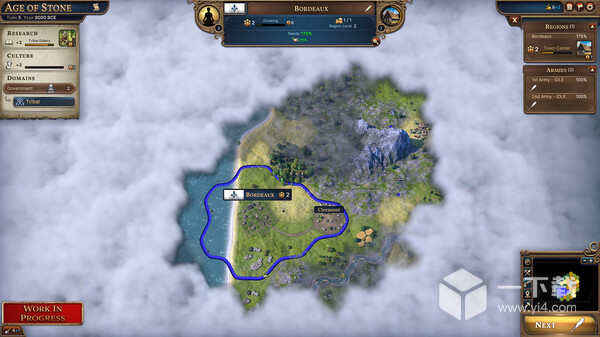Millennia is a very good game. There are a lot of gameplay contents waiting for you to explore in the game. Many friends may be troubled by the announcement of Millennia, the new historical-themed turn-based 4X game of Paradox. They don’t know where to go to find out. Confused, what should I do? Let’s take a look at the content carefully prepared by the editor of Source Code Network below. It may be useful to you!
You decide the course of history. You can experience a different timeline every time you play, and your every move will compose a magnificent epic story. You will lead the people through the era of crisis and the century of exploration, face severe challenges, seize great opportunities, and build a prosperous civilization that spans ancient and modern times.

Leading the country along the long river of history
It depicts a historical picture spanning ten eras, from the completion of the first city to mankind's march into space. Completing specific goals will advance the process to a specific era. The change of history will bring new rules, new technology, and new units. But we must be careful about the coming of an era of crisis. If we embark on the path of chaos and disorder, the world may enter a future of frequent wars, rampant epidemics, or ignorance. However, leaders with extraordinary wisdom can always turn crises into opportunities...choose the path forward carefully, as each era will have an extremely profound impact on the people and the world.

Select country targeting
Use the unique national spirit during play to create your own country. Will your country be more martial or more adventurous? Will your people prosper under a great khan, or under a builder whose name is immortal? Will you be immortalized for creating pop culture, or will you be immortalized for dominating global finance? Which part of the culture you create will leave an everlasting mark in history?

Master the profound and interesting economic system
Carefully operate the economic system to create a prosperous and growing construction nation. Start a business with basic resources, collect food, earn wealth, and start production. After steady development, you can turn your attention to research and improvement facilities, explore the best transformation path, and transform simple goods into high-value products. Promote regional production specialization, melting iron into weapons or tools, processing wood into paper or lumber, and melting gold into gold coins or jewelry. Transport surplus goods to various places according to demand, replenish the empire's granary, transport materials to the colonies and industrial hinterlands spread throughout the country, and continuously deliver supplies to the troops stationed on the enemy's side.

Unlock technology and inspire creativity
Actively acquire knowledge and conduct research to promote scientific and cultural progress, unlock new units, buildings and improved facilities, develop the city and strengthen the army. Research defense to train archers, iron smelting to master iron production technology, and guild systems to promote the brewing industry. The Age of Extraordinary and Crisis offers unique options, from a cloud manor in the Ethereal Age to an underwater city in the Utopian Age.

It’s up to you to decide the victory conditions
Entering the Era of Victory leads to ultimate victory. Near the end of the game (or perhaps earlier if the strategy is right), the dominant nation will gain the power to choose the conditions for victory. Other countries in the world will face a choice. Should they fight hard and achieve victory earlier than the leading country? Or will it hinder it and prevent the leading country from achieving its goals? You can seize the opportunity to win in the Renaissance era at any cost, or you can advance your camp step by step to win in the modern era.
These are the answers compiled by the editor of Sourcecode.com about the announcement of Millennia, the new turn-based 4X game based on the history of P Club. Time is limited and I cannot write everything out. If there is anything you still don’t understand, you can ask in the comment area, and the editor of Sourcecode.com will definitely add to it.